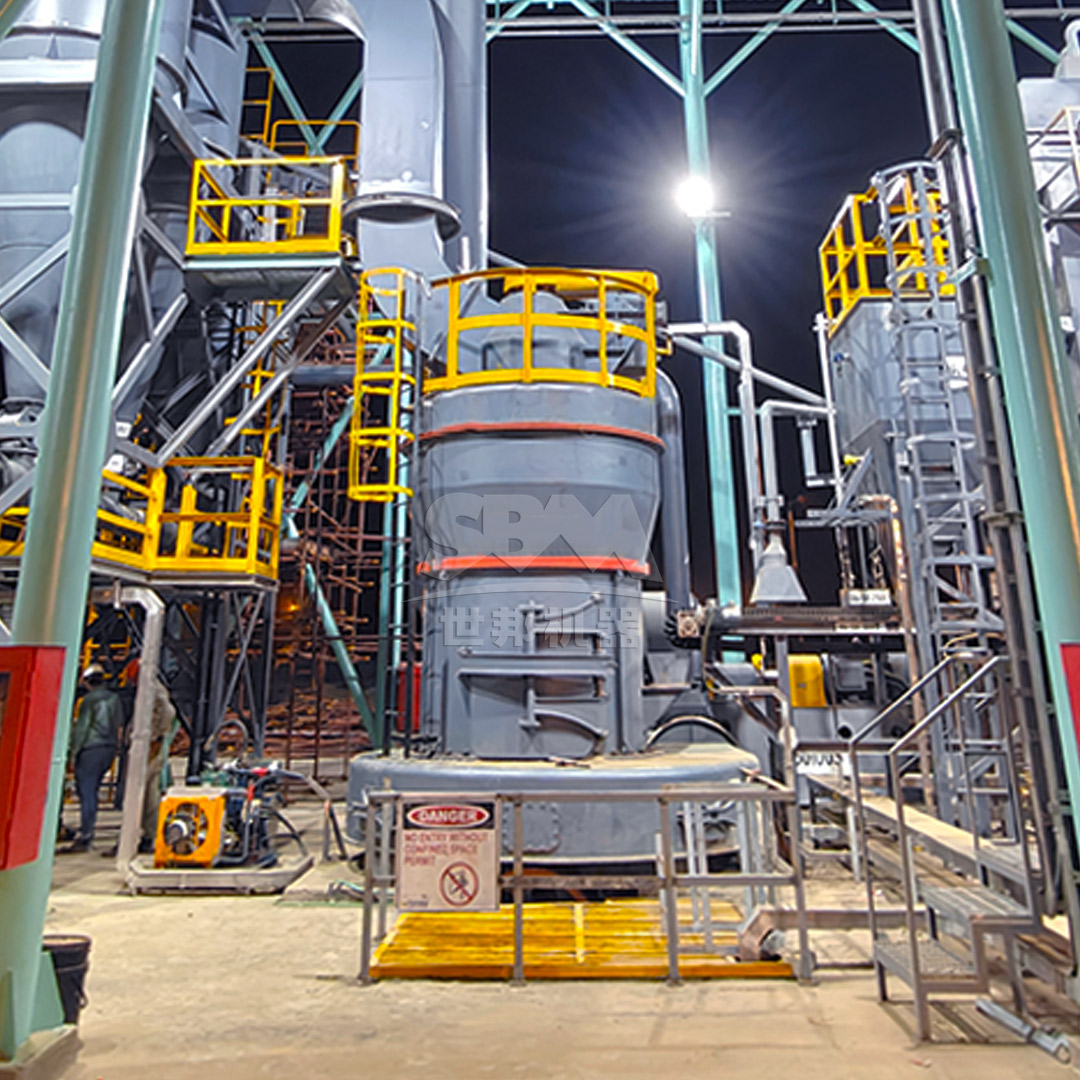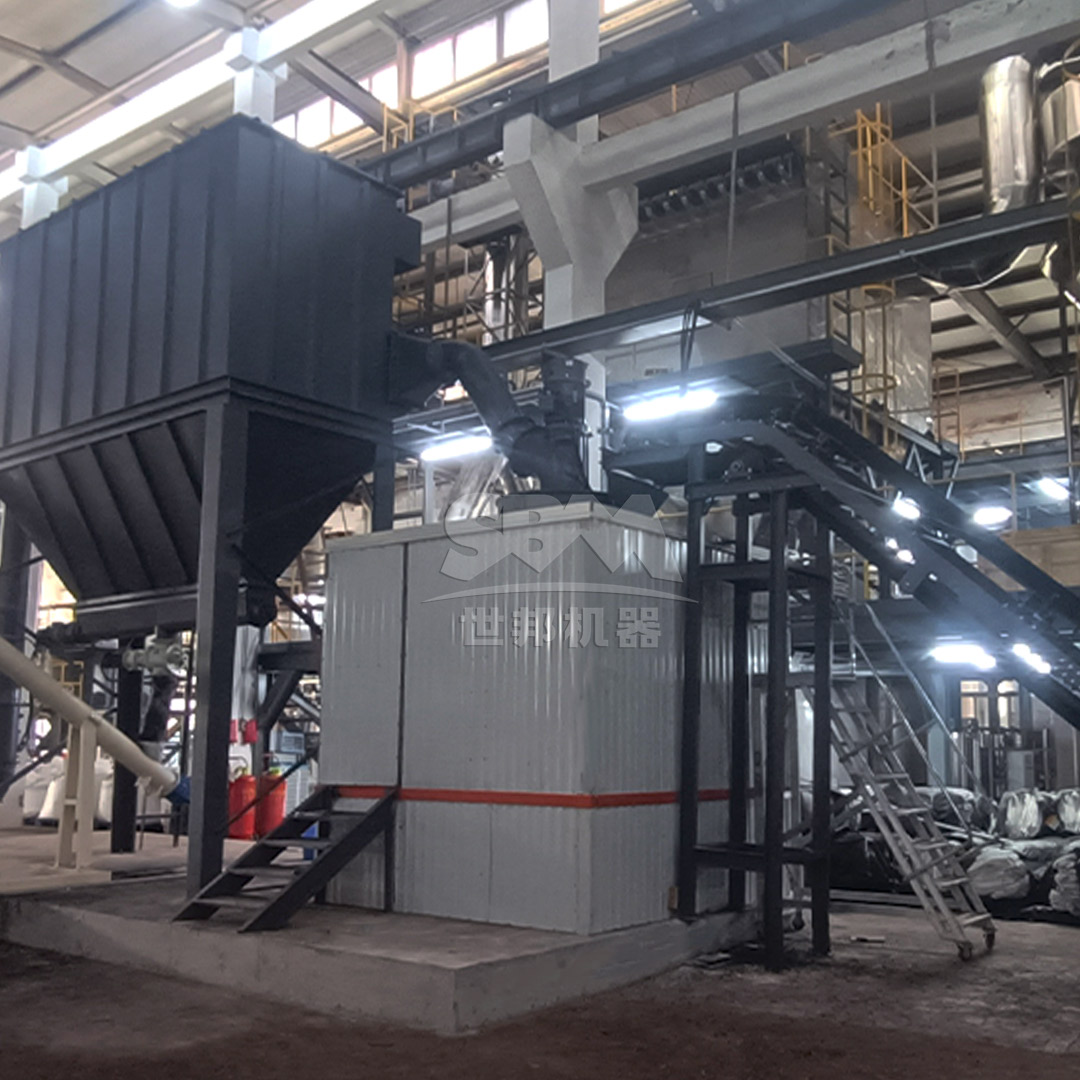In large-scale construction projects, the demand for high-quality marble powder is ever-increasing. Marble powder is widely used in various applications, including as a filler in paints, plastics, and rubber, as well as in the production of construction materials like tiles and countertops. The efficiency of the grinding process directly impacts the project’s overall productivity, cost-effectiveness, and environmental footprint. This article explores the key components of an optimized marble grinding system, focusing on advanced machinery that ensures high output, fine particle size, and sustainable operation.
Marble grinding involves reducing large marble blocks into fine powders of specific particle sizes. The process requires precision machinery capable of handling high volumes while maintaining consistent quality. Inefficient grinding can lead to increased energy consumption, higher operational costs, and subpar product quality. Therefore, investing in a complete and optimized grinding system is crucial for large-scale projects aiming to meet tight deadlines and stringent quality standards.
Marble is a relatively soft material, but its grinding presents unique challenges. These include achieving uniform particle size distribution, minimizing energy usage, reducing wear and tear on equipment, and ensuring environmental compliance. Traditional grinding methods often fall short in addressing these issues, leading to frequent downtime and increased maintenance costs.
An efficient marble grinding system comprises several key components: crushers for primary size reduction, grinding mills for fine powder production, classifiers for particle size separation, and dust collection systems for environmental protection. Each component must be carefully selected to work in harmony, ensuring seamless operation and maximum output.
The first step in marble processing is primary crushing, where large marble blocks are reduced to smaller pieces. The Hammer Mill is ideal for this stage, as it offers high crushing efficiency and can handle input sizes up to 40mm. Its robust design, featuring high-manganese steel liners, ensures durability and long service life. With outputs ranging from 0-3mm, the Hammer Mill prepares the material for further grinding.
| Model | Processing Capacity (ton/h) | Main Motor Power (kW) | Input Size (mm) | Output Size (mm) |
|---|---|---|---|---|
| PC4008-75 | 8-15 | 75 | 0-30 | 0-3 |
| PC4012-90 | 15-40 | 90 | 0-40 | 0-3 |
| PC4015-132 | 40-70 | 132 | 0-50 | 0-8 |
For large-scale projects, we recommend our Hammer Mill series, which combines high capacity with low maintenance needs. Its compact design reduces installation space, while the optimized crushing chamber ensures stable operation and minimal energy loss.

After primary crushing, the material undergoes fine grinding to achieve the desired particle size. The SCM Ultrafine Mill is specifically designed for producing ultra-fine powders with particle sizes as small as 5μm. This mill is renowned for its high efficiency and energy savings, offering up to 30% lower energy consumption compared to traditional airflow mills. Its intelligent control system automatically adjusts to maintain consistent product fineness, making it ideal for high-precision applications.
| Model | Processing Capacity (ton/h) | Main Motor Power (kW) | Input Size (mm) | Output Fineness (mesh) |
|---|---|---|---|---|
| SCM800 | 0.5-4.5 | 75 | 0-20 | 325-2500 |
| SCM900 | 0.8-6.5 | 90 | 0-20 | 325-2500 |
| SCM1000 | 1.0-8.5 | 132 | 0-20 | 325-2500 |
| SCM1250 | 2.5-14 | 185 | 0-20 | 325-2500 |
| SCM1680 | 5.0-25 | 315 | 0-20 | 325-2500 |
The SCM Ultrafine Mill features a vertical turbine classifier that ensures precise particle size distribution without coarse powder mixing. Its durable construction, with special material rollers and grinding rings, extends the equipment’s lifespan significantly. Additionally, the mill operates at noise levels below 75dB, meeting strict environmental standards.

Once grinding is complete, the powder must be classified to separate fine particles from coarse ones. Advanced classifiers, such as those integrated into the SCM Ultrafine Mill, use centrifugal force to achieve accurate separation. Meanwhile, pulse dust collectors capture airborne particles, ensuring a clean working environment and compliance with emission regulations. These systems are designed for high efficiency, with collection rates exceeding international standards.
An optimized marble grinding system offers numerous benefits for large-scale construction projects. Firstly, it enhances productivity by reducing processing time and minimizing downtime. Secondly, it lowers operational costs through energy-efficient machinery and reduced maintenance requirements. Thirdly, it ensures product consistency, which is critical for meeting project specifications. Finally, it supports sustainability goals by minimizing waste and emissions.
In a recent large-scale construction project, the integration of the SCM Ultrafine Mill resulted in a 40% increase in production output and a 25% reduction in energy costs. The mill’s ability to produce ultra-fine marble powder with uniform particle size allowed the project to achieve higher quality standards while reducing material waste. The environmental benefits were also significant, with dust emissions kept well below regulatory limits.

Optimizing efficiency in marble grinding is essential for the success of large-scale construction projects. By leveraging advanced machinery like the Hammer Mill for primary crushing and the SCM Ultrafine Mill for fine grinding, projects can achieve high productivity, cost savings, and environmental compliance. Our company’s products are designed to meet these demands, offering reliable performance and innovative features. For more information on how our grinding solutions can benefit your project, contact us today.